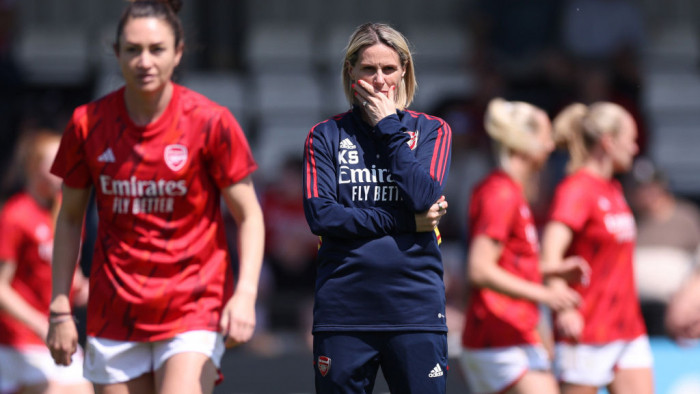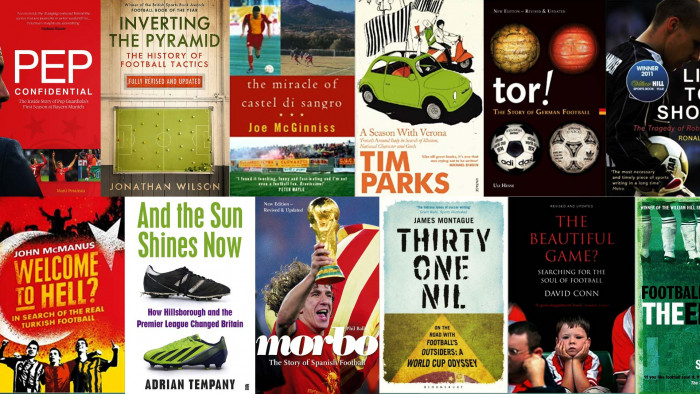9 reasons why Rio is already in danger of being an Olympics to forget
9 reasons why Rio is already in danger of being an Olympics to forget


Google ‘Rio’ and ‘missed drug tests’ and chances are you won’t be presented with the plug-like features of a certain former Premier League defender anymore.
Indeed, with doping suspicions just one of many hullabaloos to engulf the 2016 Olympics, proceedings in Brazil have as yet been eventful for all the wrong reasons.
Sure, there have been some genuinely heart-warming moments - refugee athletes, North Koreans and South Koreans sharing a selfie, more Team GB heroics - but not enough to convince us Rio 2016 was the best spot to host it in the first place.
So without further ado, here are a few reasons why they should probably have given it to Tokyo or Madrid...
The ‘road furniture’
“Wouldn’t cycling be infinitely more entertaining if we renamed it ‘The Death Road’?"
Not our words, but (probably) those of the Brazilian Olympic committee, who’ve seemingly gone out of their way to give the road race courses a series of perilous concrete traps, turning an elite sport into Takeshi’s Castle on tarmac.
First there was Italian Vincenzo Nibali, going off his bike on the descent from the Vista Chinesa on the first Saturday, breaking his collarbone and losing the race. Then barely a day later, with no extra provisions or safety measures added, Dutch cyclist Annemik van Vlueten lost the lead on the very same descent, flying over her handlebars and receiving spinal injuries on a sharp bend.
She’s making a full recovery thankfully, but how on earth did the route get cleared without more safety features or warnings of tight bends?
The empty seats

With organisers even struggling to shift tickets for the 100m final, it begs the question of just how badly wrong Rio has gotten it when it comes to filling its stadia. Maybe if they'd given the protesting poor folk of its blighted communities free tickets then there'd be less protests outside the venues.
The lack of respect

From finger waving to handshake snubbing, the knock-on effect of doping scandals has led to many athletic rivalries descending into playground-like bickering. One unsavoury spat which saw Australian swimmer Mark Horton call Chinese rival Sun Yang a ‘drug cheat’ was met with fury in the communist state, where one major national newspaper claimed Horton’s remarks highlighted how Australian was “at the fringes of civilisation” and “Britain’s offshore prison”.
We’re not saying we’re heading towards WW3, but we sort of are in sporting terms. What happened to Olympic sportsmanship? Surely in turbulent global times like this, we should be uniting human beings across this little floating space rock we call home with a shared interest in giant flaming torches and the Matrix-like speeds of ping pong players. Officials at Rio need to sort it out.
The legacy

Remember all the barren shots of dilapidated football stadiums and car parks chock-full with unused shuttle buses which emerged a year on from Brazil's 2014’s FIFA World Cup? It was enough to make even Ronaldinho frown. Well the omens don’t look much better for the impending legacy of Rio: along with the clean-up job (every athlete has 42 condoms to make use of, meaning someone is going to need to dispose of potentially 450,000 used rubbers), the event has only amplified the problems of a city already beset by crime and a crippled infastructure. Gunshots have been fired from a favela into a media centre, sex trafficking has reached record levels to deal with demand around the Games and, to top it all off, corpses have washed up near Olympic venues.
For all the upsides of sport and tourism, perhaps authorities would have been busy tackling problems closer to home before welcoming the world, possibly even putting it back by four years.
The sewage

Gold? Considering the mess the Rio Olympics have been so far it’s any wonder they’re not giving out medals forged from solidified sewage, and swapping the famous Olympic logo for one of six-pack beer rings.
As recently as last year, authorities in Rio promised that one of the lasting legacies of the Games would be the clean-up of the lagoon and Guanabara Bay, where the sailing events are being held, and that by August 2016 (yes, you’re diary isn’t lying to you, that’s now) 80 per cent of the city's sewage would receive treatment.
Well forget the legacy, the danger is still present: environmentalists claim the real figure is still below 60 per cent, 1,400 athletes are said to be in danger of becoming violently ill in water competitions. Reports this month claim swimmers need to ingest only three teaspoons of water to be almost certain of contracting a virus - taking the fun away for all those who want a quick dip after a medal win.
Plus, if there’s any worse smell than an Olympian’s used jockstrap it’s the stench of raw sewage.
The green pool

Seriously, what the blazes is that? Did Bruce Banner conduct an experiment and melt into a goop of undecipherable mess? Did someone get tickets for Dave Benson Phillips? Or did, as Canada team leader Mitch Geller suspects, the algae multiply in the warm conditions? Nobody’s sure.
You could have put a platinum medal on the table and we wouldn’t dip a toe in, let alone dive headfirst in a pair of Speedos.
The opening ceremony

Let’s be honest, it was no Danny Boyle was it?
A box park favela dance-off. Brazilian model Gisele Bundchen showing everyone why she’s the greatest person in the world at walking in a straight line while wearing high heels. That’s about as far as it went for highlights in an otherwise bland opening ceremony, where the sound quality was ropey at best. We really should have let them borrow The Spice Girls.
The zika virus

Recent Wimbledon finalist Milos Raonic. The world’s top four golfers (Jason Day, Dustin Johnson, Jordan Spieth and Rory McIlory). US cyclist Tejay van Garderen. Just a few of the big names who’ve pulled out citing concerns about the dreaded zika virus.
Whether excuses or not, and some – not US, why are you pointing this way? - would argue they were, the zika virus cast a shadow over the Games well before the opening ceremony, raising plenty of questions over the safety of the environment. Hardly the fault of the authorities but far from an ideal scenario.
The doping scandals

Come on, guys, this isn't hard: either ban suspected dopers or set up an Olympic Games whereby everyone is juiced up to the eyeballs on a dangerous cocktail of performance enhancing drugs and national pride (which we for one would pay to watch). As it is though, this political hokey-cokey of demoting and then reinstating individuals within the Russian team on a sport-by-sport basis did no favours in the fight against performance enchanting cheats, only serving to undermine everything the event is supposed to represent. Winners don’t do drugs.
Latest
Related Reviews and Shortlists









